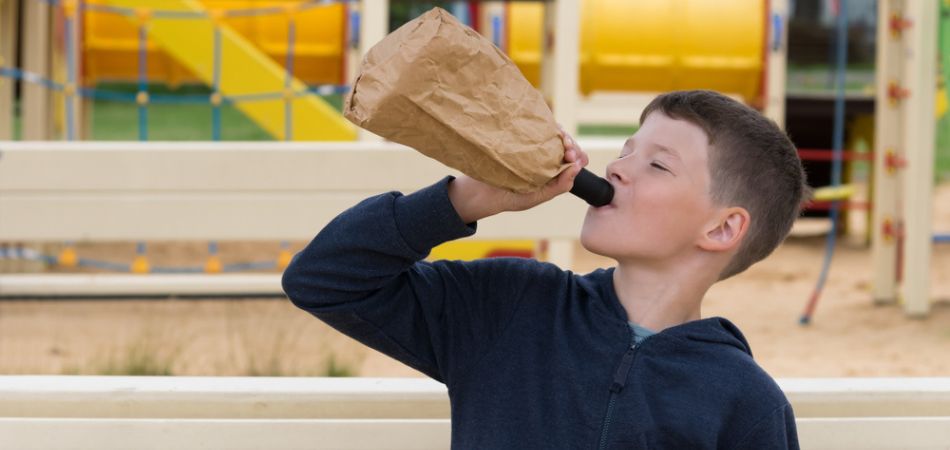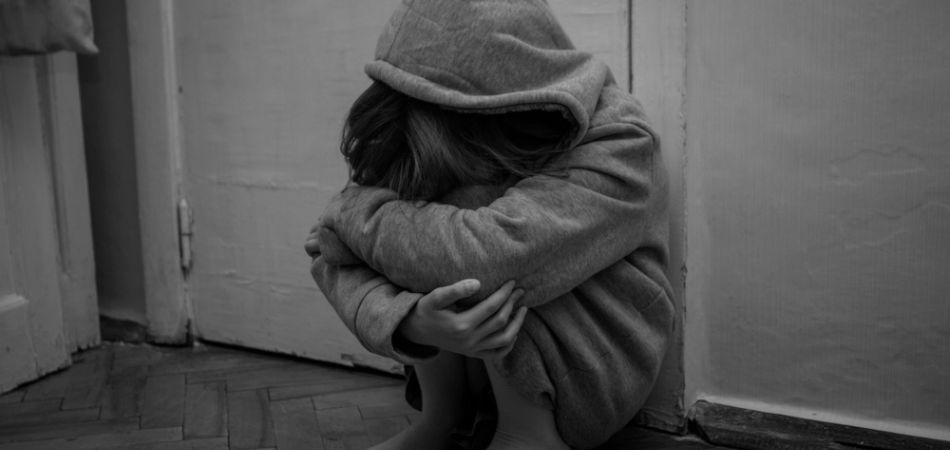Last Updated:
September 10th, 2025
Last year, more than 14,000 children under 17 were in alcohol or drug treatment. Tragically, this number would be much larger if every child had access to the treatment they need and deserve.
This guide is here for parents, guardians and caregivers of children affected by substance abuse. We want to support your timely intervention to steer them away from the treacherous path of drug or alcohol addiction.

What drives a child or teenager to try substances?
The teenage years have arguably always been plagued by risk-taking behavior and the testing of personal boundaries. We have all been there, where new, mystical temptations become a novel point of teenage interest. But the factors that drive a child to experiment with substances can be broad and multi-faceted.
Naturally, a child has not yet had the same life experiences as an adult. They have likely not experienced the hangovers and comedowns from alcohol and substance abuse, or understand the extent of the damage drugs can do. Many children and adolescents first try drugs innocuously, paying insufficient heed to the dark forces of addiction.
Broadly speaking, the motivational drivers for childhood drug use do not stem from nothing. Sadly, the backdrop of a child’s substance use is influenced by a few common themes, such as:
- Family modelling and genetic risk: If substance use is common or minimised at home, it can seem like a natural response to dealing with pressures in life. A parent’s substance use disorder (SUD) directly relates to the likelihood of a child developing a similar disorder.
- Peer pressure: Children and teenagers are often more susceptible to the forces of peer pressure and “social norms” in their friendship groups. Fitting in can feel like everything to an adolescent, so if their friends are experimenting, they may simply follow suit.
- Trauma and emotional pain: Adverse childhood experiences (ACEs) are understood to correlate with the likelihood of addiction forming in adulthood. It can be said that a child may have only recently experienced trauma, so not much time has passed for traumatic effects to worsen. However, children can be immediately affected by an ACE and see drugs as a form of escape.
- Curiosity and thrill-seeking: Lastly, there may be many cases of substance use in children stemming from simple curiosity, or the feeling of doing something taboo, in the eyes of adults. This is especially true for children without strong guidance or role models in their lives.
Understanding these drivers may not explain every aspect of substance use in a child, but it does help us to approach the issue with sensitivity and insight, two things that are crucial if you want a child to open up and trust you.
What are some red flags of drug use in children?
Recognising signs of substance use in children can be challenging, especially when they’re in an age group prone to secrecy and an aversion to telling adults how they’re feeling. Adults may show clearer signs of physical change or speak more openly about their life, while children often internalise their experiences or express them in subtle, inconsistent ways.
This is why it’s important to pay attention to changes across multiple areas, not just physical signals.
Physical indicators of drug use
Some physical signs that can suggest childhood drug use include:
- Unexplainable fatigue
- Bloodshot eyes or dilated pupils
- Frequent headaches, nausea, or complaints of feeling “off”
- Noticeable changes in appetite and weight
- Smelling of smoke, alcohol, or unfamiliar chemicals
- Sudden decline in personal hygiene or grooming
Emotional and psychological indicators
Emotional and psychological signs of substance use can result in internal changes that show as:
- Sudden mood swings and emotional outbursts
- Increasing withdrawal from friends, family and hobbies
- Anxiety, paranoia, or depressive symptoms
- Unusual levels of secrecy or defensiveness to your questions
Behavioural shifts stemming from physical and mental changes
Physical and mental changes in a child may combine and lead them to form new behaviours, which include:
- Failing grades, loss of focus, or truancy from school
- Sudden changes in peer group, especially if they seem troubled
- Lying, stealing, or evasiveness about time and money
- Changes in sleep patterns, staying up all night, or oversleeping
Seeing one or two of these signs might not be complete proof that substances are at play, but when they begin to add up or feel completely out of character, they may warrant serious attention.
Why is identifying the problem early so crucial?
The earlier you recognise and act upon a child’s substance use, the greater their chances of finding help and returning to normalcy. A child’s brain and body are, of course, still developing. The impact of childhood substance use will interfere with their:
- Academic achievement and future opportunities
- Emotional regulation and impulse control
- Brain development, memory and concentration
- Physical health and periods of growth
Early recognition gives you a chance to rebuild trust in a young person who probably feels extremely lonely. Take care not to break their trust by letting them know too quickly that you’re reaching out to professional support. You may need to be there for the child for some time as trust builds. Ensure you see at least a reduction in drug use before you let them know you’re turning to outside help.
How can I talk to the child I’m concerned about?
Approaching a child you know, or even your own child, with an intention to discuss potential substance abuse can feel daunting. You might feel almost frozen into inaction, out of a fear of breaking their connection with you or saying something that upsets them.
If handled with care, your conversation can open one of the most important doors they ever step through, the door to the sober childhood they deserve. Here are some things to keep in mind:
What can I do if I know they’re using a drug?
If the child has admitted to substance use, or the signs are simply too clear to ignore, it’s time to take action with steadiness and care. Acting in panic may push them further away, so focus on creating a supportive path forward.
Start by calmly acknowledging what you’ve seen or heard. Let them know you’re not here to punish, but to help. Emphasise that while you may not have all the answers, you’re committed to finding the right support together.
Depending on the situation, you may need to set clear, age-appropriate boundaries around their behaviour. Explain the reasons and follow through consistently, without anger or judgement. Then, consider involving trusted figures such as school counsellors, a GP, or mental health professionals to help build a structured plan for support.
The earlier you intervene, the better the chance of stopping the pattern before it becomes entrenched.
I need support for someone’s addiction
Supporting a child through suspected or confirmed substance use can be overwhelming. You may feel a mix of fear, anger, sadness, or guilt, but you don’t have to navigate it alone.
At Oasis Bradford, we understand how addiction can affect young lives and the people who care for them. We specialise in safe, compassionate care tailored to the needs of individuals and families. From initial detox to long-term recovery support, we walk with you every step of the way.
If you’re worried about a child in your life, now is the time to act. Contact Oasis Bradford today to speak with someone who understands and can help you move forward.
(Click here to see works cited)
- “Children and Young People’s Substance Misuse Treatment Statistics 2023 to 2024: Report.” GOV.UK, www.gov.uk/government/statistics/substance-misuse-treatment-for-young-people-2023-to-2024/children-and-young-peoples-substance-misuse-treatment-statistics-2023-to-2024-report
- Lipari RN, Van Horn SL. Children Living with Parents Who Have a Substance Use Disorder. 2017 Aug 24. In: The CBHSQ Report. Rockville (MD): Substance Abuse and Mental Health Services Administration (US); 2013-. Available from: https://www.ncbi.nlm.nih.gov/books/NBK464590/
- He J, Yan X, Wang R, Zhao J, Liu J, Zhou C, Zeng Y. Does Childhood Adversity Lead to Drug Addiction in Adulthood? A Study of Serial Mediators Based on Resilience and Depression. Front Psychiatry. 2022 Apr 18;13:871459. doi: 10.3389/fpsyt.2022.871459. PMID: 35509889; PMCID: PMC9058108.


